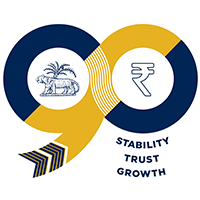 IST,
IST,
Micro, Small and Medium Enterprises
Yes, banks provide following services to the MSE entrepreneurs:
(i) Rural Self Employment Training Institutes (RSETIs)
At the initiative of the Ministry of Rural Development (MoRD), Rural Self Employment Training Institutes (RSETIs) have been set up by various banks all over the country. These RSETIs are managed by banks with active co-operation from the Government of India and State Governments. RSETIs conduct various short duration (ranging preferably from 1 to 6 weeks) skill upgradation programmes to help the existing entrepreneurs compete in this ever-changing global market. RSETIs ensure that a list of candidates trained by them is sent to all bank branches of the area and co-ordinate with them for grant of financial assistance under any Govt. sponsored scheme or direct lending.
(ii) Financial Literacy and consultancy support:
Banks have been advised to either separately set up special cells at their branches, or vertically integrate this function in the Financial Literacy Centres (FLCs) set up by them, as per their comparative advantage. Through these FLCs, banks provide assistance to the MSE entrepreneurs in regard to financial literacy, operational skills, including accounting and finance, business planning etc. (Refer circular RPCD.MSME & NFS.BC.No.20/06.02.31/2012-13 dated August 1, 2012).
Also, Financial Literacy Centres operated by Scheduled commercial Banks (including RRBs) have been advised vide our circular FIDD.FLC.BC.No.22/12.01.018/2016-17 dated March 02, 2017 to conduct target specific financial literacy camps wherein one of the target groups identified is MSEs.
In terms of the Master Direction FIDD.MSME & NFS.12/06.02.31/2017-18 dated July 24, 2017, banks have been advised to review and tune their existing lending policies to the MSE sector by incorporating therein the following provisions so as to facilitate timely and adequate availability of credit to viable MSE borrowers especially during the need of funds in unforeseen circumstances:
i. To extend standby credit facility in case of term loans
ii. Additional working capital to meet with emergent needs of MSE units
iii. Mid-term review of the regular working capital limits, where banks are convinced that changes in the demand pattern of MSE borrowers require increasing the existing credit limits of the MSEs, every year based on the actual sales of the previous year.
iv. Timelines for Credit Decisions.
(Refer to the circular FIDD.MSME & NFS.BC.No.60/06.02.31/2015-16 dated August 27, 2015 for further information.)
In terms of the Master Direction FIDD.MSME & NFS.12/06.02.31/2017-18 dated July 24, 2017, banks have been advised that timeline for credit decisions for loans up to ₹25 lakh to MSE borrowers shall not be more than 14 working days. For loans above the aforementioned limit, timelines shall be as per the Board approved sanction time norms of the banks. Further, banks have also been advised to display all credit related information pertaining to MSMEs including timelines for credit decisions, indicative document checklist etc., under a separate tab prominently on the bank's website.
In terms of the Master Direction FIDD.MSME & NFS.12/06.02.31/2017-18 dated July 24, 2017, banks have been advised to put in place a Credit Proposal Tracking System (CPTS)/ equivalent tracking mechanism to facilitate central registration and a system of e-tracking of all MSME loan applications. This mechanism shall automatically generate an acknowledgement of the application, having a unique application serial number for both physical and online applications. Banks shall ensure that the acknowledgement and status of the application is sent automatically to the applicants.
Further, Banks have also been advised to convey to the MSME borrowers in writing the main reason/reasons which, in the opinion of the bank after due consideration, have led to rejection of the loan applications. (Refer to the circular RPCD. MSME&NFS.BC.No.74/06.02.31/2012-13 dated May 9, 2013 for further information.)
The objective of TReDS is to create Electronic Bill Factoring Exchanges which could electronically accept and settle bills so that MSMEs could encash their receivables without delay. This will not only give them greater access to finance but will also put greater discipline on corporates to pay their dues on time. For more details you may refer to RBI guidelines for setting up and operating TReDS.
In terms of announcement in para 48 of First Bi-monthly Monetary Policy Statement, 2016-17, Reserve Bank laid down a framework for accreditation of credit counsellors which was shared with SIDBI for laying down operational guidelines. Accordingly, the scheme was launched by SIDBI in July 2017. As per the scheme, Certified Credit Counsellors are institutions or individuals registered with SIDBI who shall assist MSMEs in preparing project reports in a professional manner which would, in turn, help banks make more informed credit decisions.











